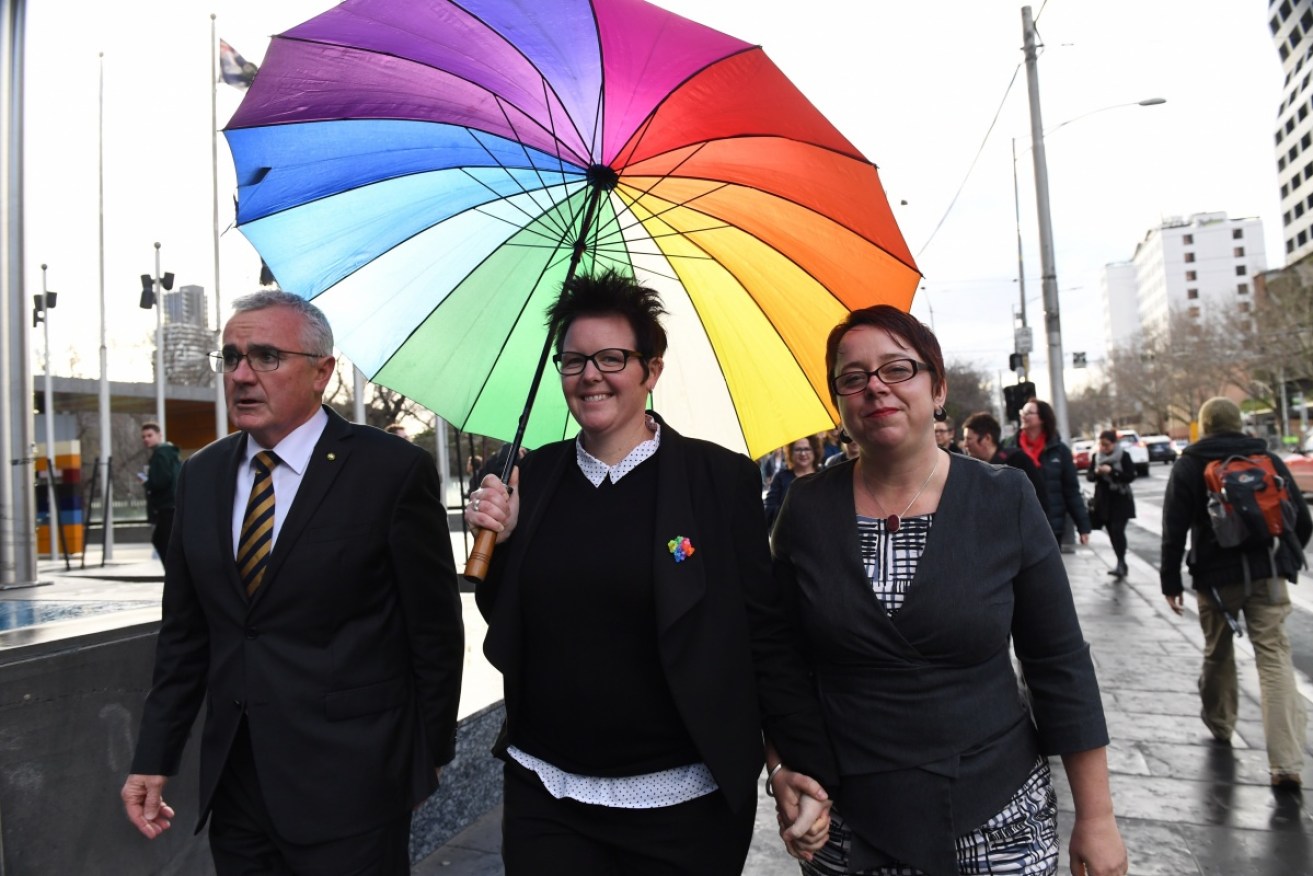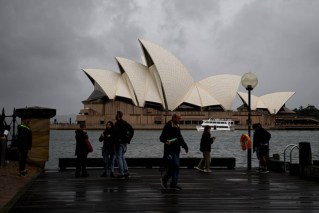Government banking on High Court to green light marriage postal survey


Same-sex marriage advocates will take their case to the High Court this week. Photo: AAP
The Turnbull government is keeping tightlipped about what will happen if the marriage postal survey is struck down by the High Court, an outcome constitutional law experts say is likely.
Liberal frontbencher Christopher Pyne said on Sunday the government would have to “consider options” if the court ruled the Australian Bureau of Statistics-led survey was unconstitutional.
“If the High Court rules against the postal vote going ahead, then I guess we’ll have to consider options after that,” Mr Pyne, who supports same-sex marriage, told the ABC’s Insiders.
“But we are certainly making our best efforts to ensure that we keep our policy, which was a national vote, everyone having a say, everyone being part of this decision.”
Labor frontbencher Amanda Rishworth said on Sunday that the opposition hoped the government would allow a free vote on the issue if the postal survey was struck down.
Despite the risk of the High Court striking down the survey, and ongoing questions about the eligibility of Barnaby Joyce and others in the Coalition to sit in Parliament, the latest Newspoll had the government regaining lost ground on Labor, 47 per cent (+1) to Labor’s 53 per cent (-1) in two-party terms.
The Coalition also improved its primary vote to 37 per cent (+2), while Labor and the Greens held steady at 38 per cent and 9 per cent respectively.
It comes as same-sex marriage advocates look to the courts to block the $122 million postal survey when it hears two challenges on September 5 and 6.
In submissions to the court, same-sex marriage advocates argued the government’s decision to bypass the Parliament was unconstitutional and that the ABS did not have the authority to conduct the postal vote.
The government chose to appropriate money to pay for the survey by using a special fund that is available to the Finance Minister but earmarked for “urgent and unforeseen” expenses.

Christopher Pyne is one of the government’s most prominent same-sex marriage supporters. Photo: AAP
A submission from Australian Marriage Equality and Greens senator Janet Rice noted that “senior members of the government were expressly ‘contemplating’ as an ‘option’ a postal plebiscite” before it was announced.
“The government also noted the ‘fiscal risk’ in the 2018 Budget Paper in relation to a compulsory ‘same-sex marriage plebiscite’,” the submission states.
“In these circumstances, it can be seen that the expenditure for a postal plebiscite was not only not ‘unforeseen’, it was in fact specifically contemplated.”
But the government argued in its submission that it was for the Finance Minister to determine whether or not the circumstances were “unforeseen”.
“Once the government decided not to proceed with a compulsory attendance plebiscite, and instead to direct the ABS to undertake the AMLPS, the ABS had a ‘need’ for ‘the expenditure’ that was plainly unforeseen and not provided for in the [budget],” the Australian Government Solicitor argues.
“It was clearly open to the Finance Minister to be satisfied that this condition was met.”
Advocates’ hopes were boosted last week by constitutional law expert George Williams’ suggestion that he expected the court to rule the survey was unconstitutional.
Professor Williams, the Dean of Law at the University of New South Wales, said it would be difficult for the government to justify its decision to bypass the Parliament.
“It has the appearance of a round peg in a square hole,” he said.
“What about this survey is urgent, except for the fact that it is necessary because of the government’s own political imperatives?”
When the survey was first announced, former ABS top statistician Bill McLennan told The New Daily he doubted the survey would classify as “statistics” under the ABS Act.








